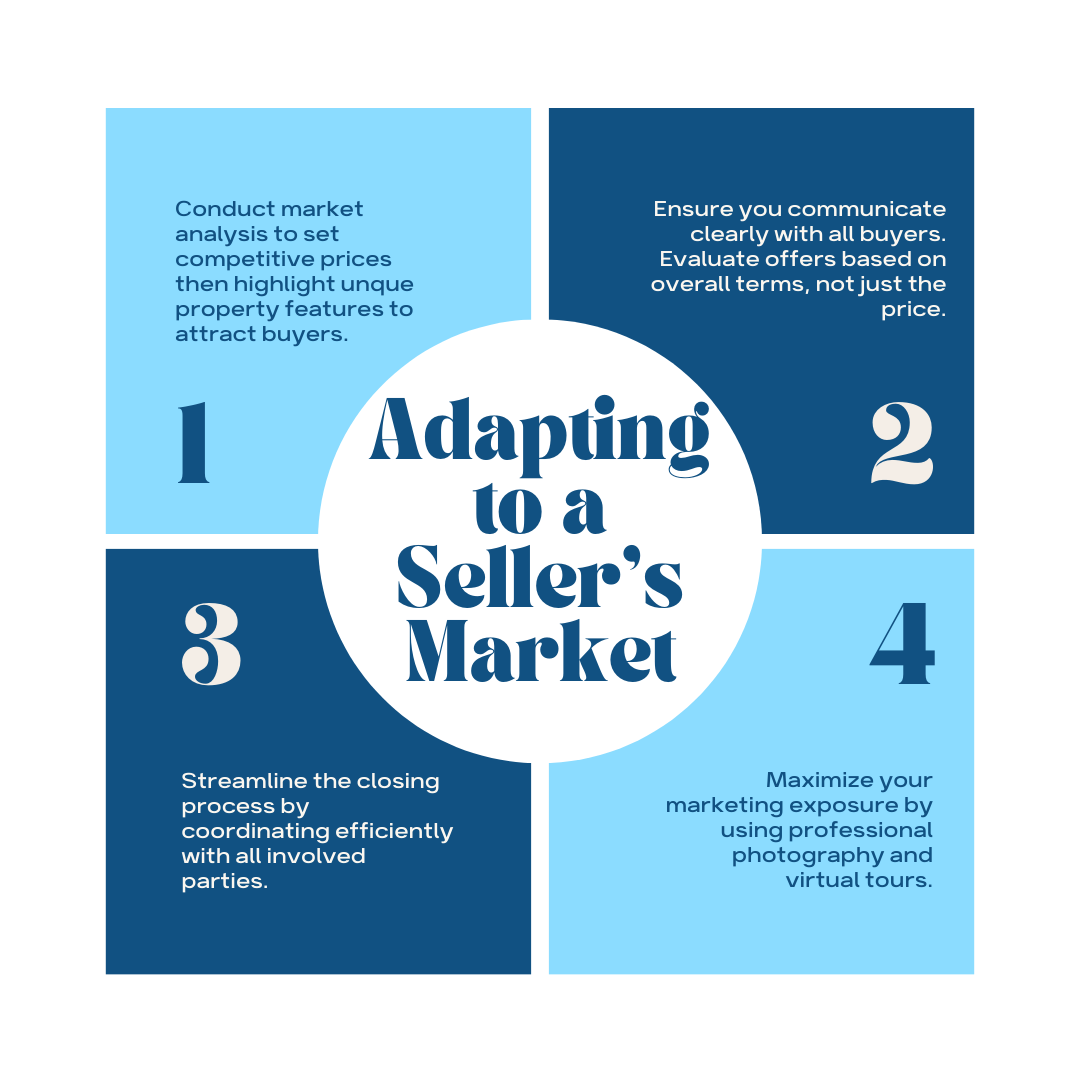How Market Conditions Impact Real Estate Transactions
Understanding the real estate market is like mastering a game of chess – it requires strategy, foresight, and a touch of finesse. Whether you’re a buyer, seller, or agent, market conditions play a crucial role in shaping how properties are bought and sold. Let’s dive into the world of buyer's and seller's markets, and explore how agents can stay nimble and thrive in any scenario.
Understanding Market Conditions
Market conditions refer to the economic environment that influences real estate at any given time. Picture this: a delicate dance of economic indicators, interest rates, employment rates, and other financial factors that determine the supply and demand of properties.
Factors Influencing Market Conditions
Economic Indicators: Think of inflation rates, GDP growth, and employment rates as the heartbeat of the market. They significantly affect how the market moves.
Interest Rates: When interest rates are low, buyers are more eager to jump in. High rates, however, can act like a splash of cold water, cooling the market down.
Supply and Demand: If there are more homes than buyers, you’re in a buyer's market. More buyers than homes? Welcome to a seller's market.
Impact of a Buyer's Market on Real Estate Transactions
Negotiation Power Shifts to Buyers: In a buyer's market, it’s a buyer's world. They have the upper hand in negotiations, often snagging properties at lower prices with favorable terms.
Increased Buyer Incentives: Sellers, eager to close deals, may throw in goodies like paying for closing costs or offering home warranties.
More Extensive Property Searches: With plenty of homes to choose from, buyers can take their sweet time exploring options before making a decision.
Impact of a Seller's Market on Real Estate Transactions
Competitive Bidding Situations: In a seller's market, buyers often find themselves in fierce bidding wars, pushing prices up.
Faster Transaction Processes: Homes fly off the market quickly. Buyers need to be ready to act fast to secure their dream home.
Fewer Buyer Concessions: Sellers call the shots and are less likely to offer discounts or negotiate on terms.
Adapting to a Buyer's Market: Strategies for Agents
Emphasizing Property Features and Value: In a crowded market, agents need to highlight what makes a property stand out – from special amenities to energy-efficient installations. High-quality photos and virtual tours can work wonders in attracting buyers.
Flexible Negotiation Tactics: Agents must be skilled negotiators, crafting deals that appeal to buyers while satisfying sellers. This might include advising sellers on price adjustments or offering to cover closing costs.
Adapting to a Seller's Market: Strategies for Agents
Pricing Strategies for Quick Sales:
In a hot market, pricing strategies are vital. Agents should use market analyses to set competitive prices that attract multiple offers, often driving up the final sale price.
Managing Multiple Offers: Agents must evaluate offers not just on price but on terms like financial stability and closing timelines. Clear communication and strategic counteroffers can maximize seller benefits.
Streamlining the Closing Process: Efficiency is crucial. Coordinating with mortgage lenders, inspectors, and title companies ensures smooth, expedited transactions.
How Technology Helps in Adapting to Market Conditions
Utilization of Real Estate Platforms and Tools: Agents should leverage tech tools to manage listings, CRM, and market analysis. High-res photos, real-time updates, and detailed property descriptions keep buyers engaged.
Data Analytics for Market Insights: Analyzing market data helps agents identify trends, optimize pricing, and tailor marketing strategies. Predicting neighborhood value increases and tracking campaign performance can give agents a competitive edge.
The Future of Real Estate Transactions
Predictions for Market Conditions: The market will continue to fluctuate with economic trends, interest rates, and global events. Lower interest rates boost buying, while higher rates can slow things down.
Emerging Trends in Real Estate Transactions: Trends like remote work, tech innovations (VR and AR), and demand for sustainable homes are shaping how properties are marketed and sold.
How Agents Can Stay Ahead
To stay competitive, agents must embrace continuous learning, keep up with tech advancements, and network within the industry. By staying informed and adaptable, agents can navigate any market condition and deliver exceptional service.
Navigating market conditions is an art. Whether it’s a buyer’s market or a seller’s market, staying flexible, informed, and strategic ensures that agents can effectively manage transactions and keep their clients happy.




